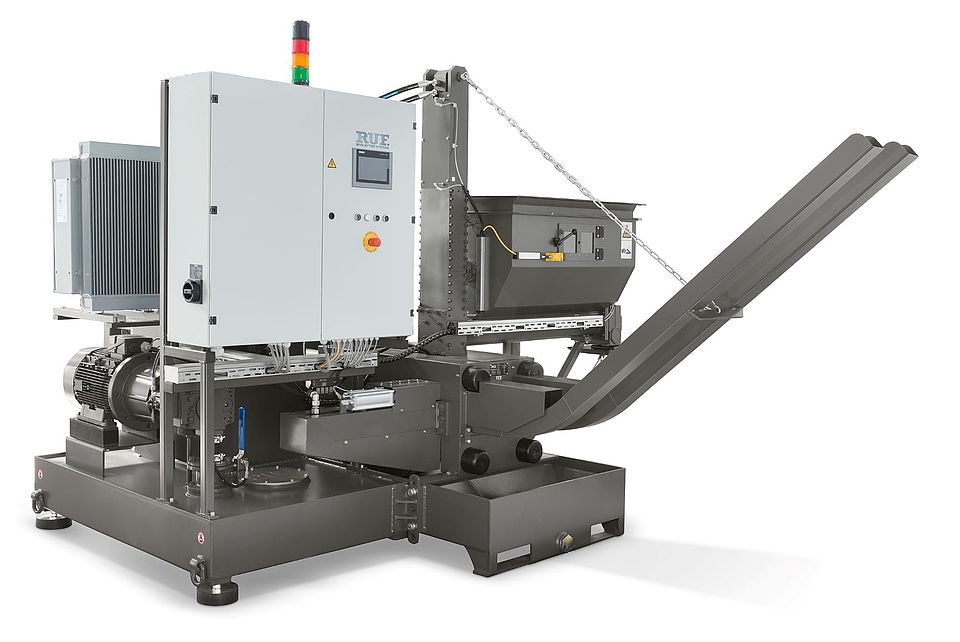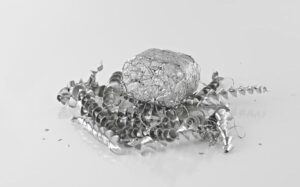

Briquetting presses
Briquetting presses – an economical disposal solution
With briquetting presses, a wide variety of materials, such as metal, aluminium, wood, biomass and other residual materials can be pressed into high-quality briquettes. We can offer you a tailor-made briquetting system that meets your needs precisely, taking into account the material to be used, the required throughput and the production conditions. Our experts are available at all times to offer you support – from planning, assembly and commissioning right through to servicing and maintenance.
It doesn’t matter whether you are looking for a stand-alone machine or whether a briquette press should be integrated directly into your production process. Our briquette presses can also be easily integrated into complete systems.
The advantages of briquetting are just as diverse as the materials that can be pressed – by reducing volume, you not only save space, time and costs for handling, storage and transport, you also earn higher revenues! Get the maximum benefit from your residues with a briquetting press from Hunkeler Systeme AG. Do you have any questions or a challenge for us? Our expert team of consultants will be happy to help you find the right solution.
The advantages of briquetting

Volume reduction

Increased revenues from the
sale of briquettes

Reduced logistics expenditure &
disposal costs

Environmental firendly
Briquetting presses for metal
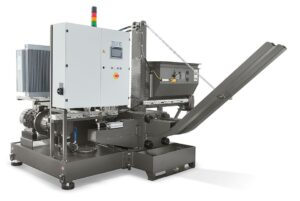
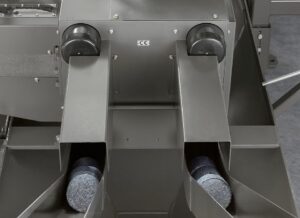
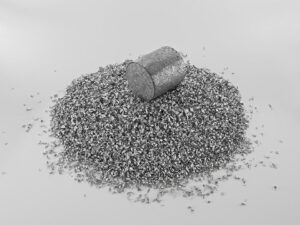

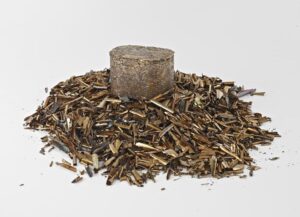
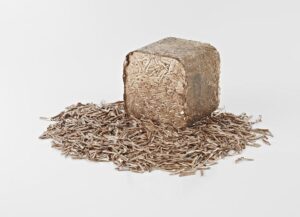
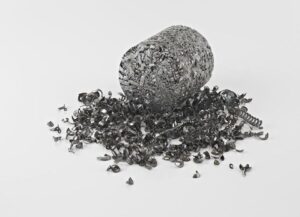
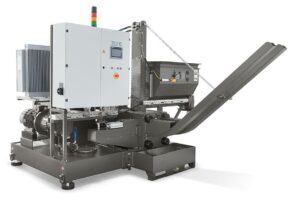
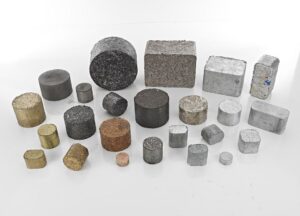
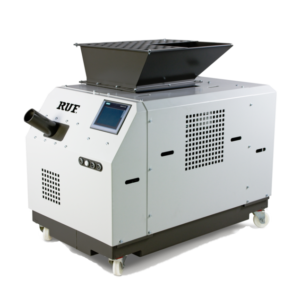
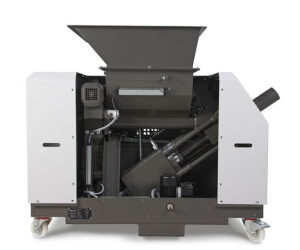
The value of metal residues can be greatly increased with our metal press machine. The metal chip briquetting machine is a real all-rounder and is suitable for pressing aluminium, steel, cast iron, copper and countless other metals. On the basis of the particular experience we have gained in the field of metal chip recycling, we are able to offer briquetting solutions which are individually tailored to customer-specific requirements.
Briquetting is a suitable treatment method for de-watering or de-oiling wet metal chips. During the briquetting process, our metal chip press recovers cooling lubricants that adhere to the damp metal chips. Consumption of these expensive cooling lubricants is thereby significantly reduced.
Depending on customer requirements, we offer metal chip presses for throughputs between 30 and 5,000 kg per hour. The required throughput and briquette density will have an influence on the choice of the briquette format.
Advantages:
- Recovery of expensive cooling lubricants
- Significant reduction in volume reduces transport costs
- More efficient chip logistics within the company
- Defined scrap quality
- Increased revenues from briquettes
- Reduced melting loss when re-melting
- Low maintenance costs & long service life
- Improved cleanliness at the workplace
Briquetting presses for grinding sludge
Our grinding sludge press forms briquettes from grinding sludge, recovering expensive cooling lubricants, such as oil or emulsion, in the process. These may actually account for more than 50% of the starting material.The special briquetting technique used for grinding sludge is based on a special construction, which has been technically adapted to deal with this particularly abrasive material. Due to its compact structure, the grinding sludge press can easily be incorporated into existing production processes and is suitable for 24h operation.
In addition to the recycling of grinding sludge, the recovery of cooling lubricant also results in significant savings. Costs are cut to a considerable degree thanks to the reduction in the amount of grinding sludge to be disposed of. Grinding sludge briquettes may also be classed as “non-hazardous waste”, although the agreement of the local authorities needs to be obtained.Briquetting ensures a more sustainable, cleaner workplace. Depending on customer requirements, we offer grinding sludge presses for throughputs between 40 and 350 kg per hour.
Advantages:
- Recovery of expensive cooling lubricants – oil or emulsion
- Reduction in the amount to be disposed of
- Savings in logistics and transport
- Compact construction
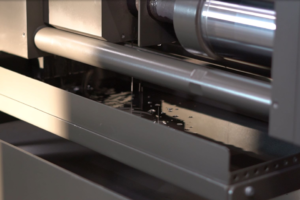
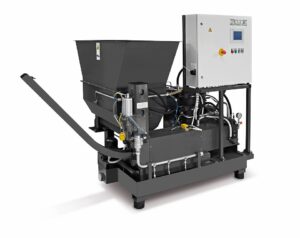
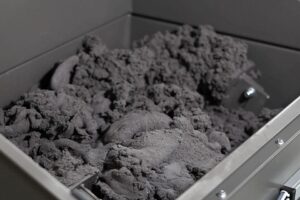

Briquetting presses for wood

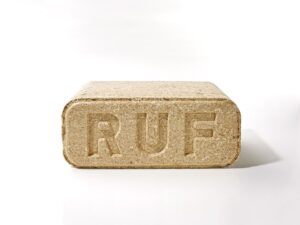

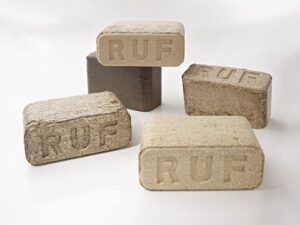
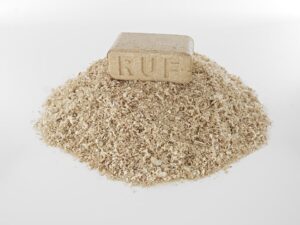
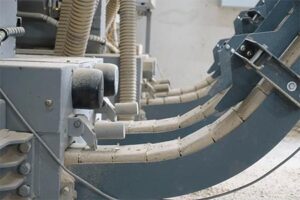
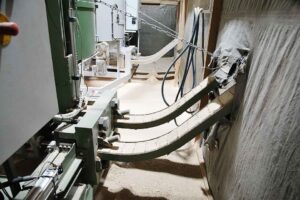
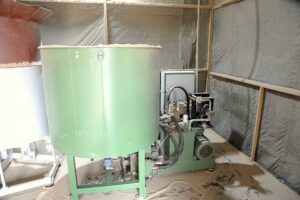
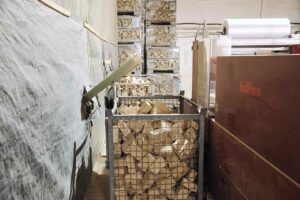
Our wood briquetting press forms briquettes from your wood chips to enable profitable sales. The LIGNUM wood chip briquetting press range has the flexibility to process various different grain sizes of the material into briquettes of a consistently high density and quality. The LIGNUM range works with a very high level of energy efficiency thanks to our innovative hydraulics. Due to its compact structure, the sawdust press is easy to incorporate into existing production processes and is suitable for 24h operation.
Thanks to the great number of wood chip machines we have sold, our briquetting presses are popular all over the world as a sustainable, high-quality fuel. A consistent length and a constant weight of the briquettes can largely be ensured, even with different bulk densities, through our highly developed system of briquette length regulation. To be able to press wood chips, it is important that the water content of the material is below 15%. Depending on customer requirements, we offer wood briquette machines for throughputs between 410 and 1,050 kg per hour..
Advantages:
- Increased revenues from briquettes
- No binding agents required
- CO2-neutral fuel
- Higher calorific value as a fuel than firewood
- Space-saving storage thanks to rectangular format
Briquetting presses for banknotes
Briquetting presses also play a crucial role in banknote disposal and help to make the destruction process more efficient and environmentally friendly. They compact shredded banknotes from offline shredders and sorting machines into manageable and compact briquettes. In this way, briquetting presses increase security when handling shredded banknotes as well as cleanliness in the workplace.
The high compaction ratios of up to 1:12 lead to considerable reductions in transport and storage capacities. Companies & central and national banks can thus efficiently reduce storage and transportation costs and massively reduce environmental pollution and CO2 emissions through less numbers of transports for a given amount of shredded banknote waste.
Briquetting presses from Hunkeler Systeme AG are suitable for briquetting cotton-based paper banknotes (or comparable substrates) as well as for composite substrates (e.g. Durasafe®). Polymer banknotes can also be briquetted, when mixed with paper or composite banknotes. However, the proportion of polymer in the total volume should not exceed 30% to ensure good briquette quality.
Advantages:
- Increased security when handling shredded banknotes
- Increased cleanliness at the workplace
- High compaction ratios of up to 1:12 and briquette densities of up to 1 kg/dm3
- Reduced storage and transportation costs
- Reduced CO2 emissions and lower environmental impact
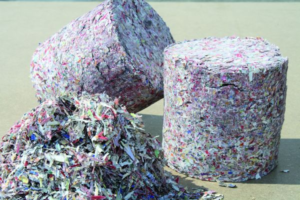
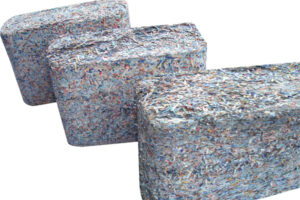
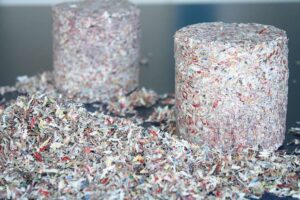
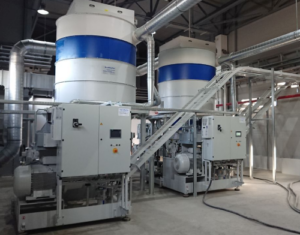
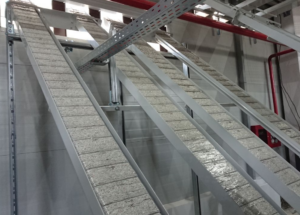

Functional principle of a briquette press
Video Player
Media error: Format(s) not supported or source(s) not found
Download File: https://www.hunkelersysteme.com/wp-content/uploads/2024/11/14_Brikettierpresse.mp4?_=1Contact us for a consultation
Interesting case stories
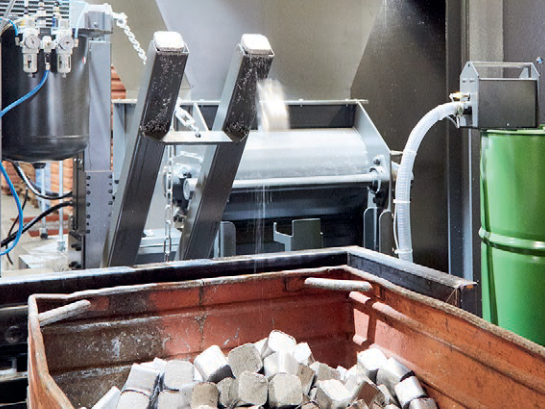
Alu Menziken Extrusion AG
Alu Menziken Extrusion AG compacts shavings from aluminium processing on a briquetting press from Hunkeler Systeme AG.
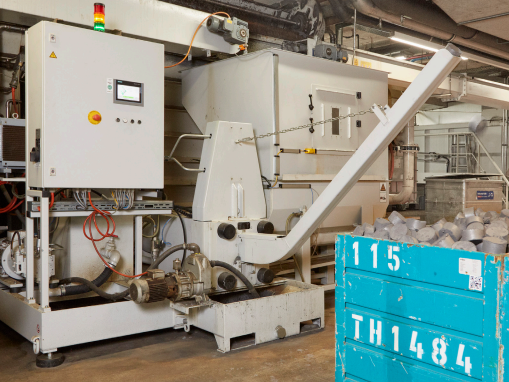
Scintilla AG
For almost 25,000 hours, a press compacted grinding sludge into briquettes. Now it has been replaced by a new system.
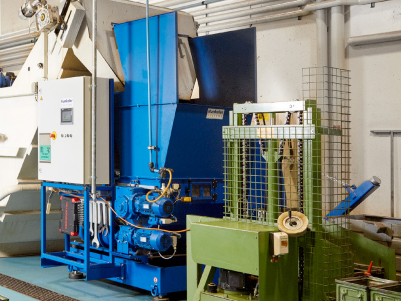
FELCO SA
For thirty years, a briquette press from Hunkeler Systeme AG ensured production operations at FELCO SA.
Contact

